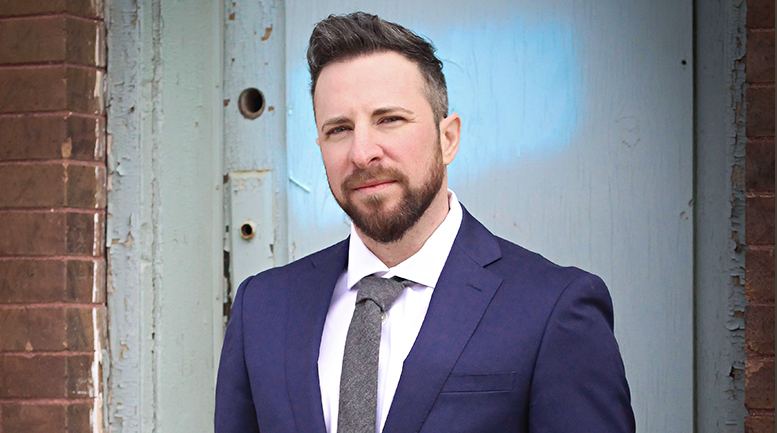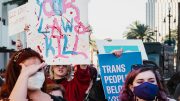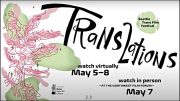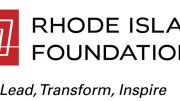Brockton LGBTQ community offers some services
By: Al Gentile/TRT Reporter—
Communities around Massachusetts and the New England area have various services, entities, and groups with missions of supporting LGBTQ people. In some cases, the variety of services might be enough, while in others, more work needs to be done. The Rainbow Times looked into services for the LGBTQ community of Brockton to inform our readers of what is available, and what is still needed.
BOSTON—With a population of roughly 95,000 people, Brockton, Massachusetts has a higher-than-average poverty rate and the status of being a minority-majority city, both of which make for a unique set of social circumstances for the LGBTQ community living in the south shore municipality.
In some respects, Brockton has many resources for LGBTQ people. Health Imperatives, a nonprofit focusing on public health issues, has an office in Brockton that helps at-risk youth and families find services and develop support systems.
For LGBTQ people, Health Imperatives develops catered approaches to the particular problems facing this population.
“There are many social determinants of health that the LGBTQ+ community faces that can lead to poor health outcomes, have negative socioeconomic impacts, and limit access to care,” said Jessica Cisternelli, director of clinic operations for sexual and reproductive health services. “We know that the LGBTQ+ community faces higher rates of suicide, unintended pregnancies, homelessness, and substance use.”
Deirdre O’Donnell, who identifies as queer, is the program manager for Health Imperative’s Adolescent Sexuality Education Program. Much of her work centers around educating youth about safe-sex practices and empowering them to make safe choices in sexual relationships.
“The program starts with the difference between biological and gender identity, reproductive anatomy, all the different parts and what they do, and shared responsibility [for] things like pregnancy,” O’Donnell said. “Then we move into sexual identity and orientation, contraceptive devices … we cover all the different sexually-transmitted infections and how they’re treated, and the last few lessons center around helping youth empower themselves with good communication skills, so they can do things like negotiating boundaries and consent.”
Cisternelli said Health Imperatives goes as far as to offer PrEP—Pre-Exposure Prophylaxis, a medication which works to make HIV undetectable and, ultimately, almost eliminate the chance of spreading the virus—among other services for LGBTQ people.
“We see many clients that identify as LGBTQ+,” Cisternelli said. “We also connect both youth and adults to social supports, health care, and other community resources.”
O’Donnell also makes herself personally available to answer questions and direct clients to services. She said out of the people she deals with, approximately 70 percent are from the LGBTQ community.
Health Imperatives also strives to bring in experts from various stakeholding communities, such as those who specialize in working with people from the LGBTQ population.
“We have people who are domestic violence advocates specializing in LGBTQ issues, and things like that, so we have a network of people we can refer folks to, not necessarily as mentors, but people who specialize in different areas that can improve people’s social self-determination and health,” O’Donnell said.
Having a staff that reflects the community they serve, O’Donnell explained, is imperative to making their services an investment in their clients’ futures. O’Donnell also emphasized the services provided to LGBTQ youth.
“We have found scientifically that if you have even one trusted adult who they can speak to about issues pertaining to human sexuality, they’re actually more likely to delay sexual activity and focus on their goals and schooling,” she said.
Health Imperative’s Sexual Violence and Sexual Assault Program is another resource that works with youth, LGBTQ and otherwise, to educate them on knowing what is available if they find themselves in a physically or sexually abusive relationship.
Through a partnership with the Brockton Alliance of GLBT Youth (BrAGLY), Health Imperatives offers crisis counseling and advocacy services specifically for LGBTQ people.
“We get a significant amount of transgender youth who enroll, and our main goal through BrAGLY and the whole AGLY network is to reduce HIV transmission,” O’Donnell said. “What we try to encourage is positive youth development for folks who may or may not identify as part of the LGBTQ community.”
As part of their offerings for LGBTQ youth, peer leaders facilitate support-building for other people in their community.
“Sometimes we have conversations that the youth lead, with a little bit of guidance and advisement from me,” O’Donnell said. “We have an upcoming conversation on intersectionality and oppression, we have an upcoming conversation on the stigma of mental health and mental illness and more. We make it a little support system and support group for youth to come, have a snack as an incentive, and find some community.”
O’Donnell’s drive to serve the vulnerable populations of Brockton stems from her own experiences dealing with homelessness. Thrown out on the streets by her parents, whom she described as “born-again Christians,” O’Donnell found her calling helping youth to avoid the struggles she had to face.
“When I was 17 years old, I got a condom in a package or something from a health class I was in, had that in my backpack, and my parents went through my stuff, found it, and threw me out of the house, and I couch-surfed during my senior year,” O’Donnell said. “I was very scared, and at that point, I said, ‘You know what, I’m going to do this work for a living. I’m going to make the best of the situation, and I’m going to make sure this never happens to another youth ever again, for as long as I can.’”
Health Imperatives also has staff that speaks Spanish, Portuguese, Cape Verdean, and Creole.
Family and Community Resources
In some cases, the struggles LGBTQ people face in terms of domestic and intimate partner violence, or abuse in other forms, create an immediate need for help.
Brockton-based Family and Community Resources (FCR) is a trauma-focused organization that provides referral services, crisis reaction services, and a myriad of other resources for people who have an immediate need for help.
Ruth Zakarin, director of trauma services at FCR, said she and her staff are often at the forefront of a client’s immediate needs, whether through a walk-in or via their 24-hour hotline.
The mission, Zakarin said, is to push as hard as possible for a complete solution to a client’s needs.
“We take a really holistic approach to the work we do for survivors of trauma,” Zakarin said. “We don’t just address the violence and the trauma itself, but we want to make sure that folks can be well and happy in all aspects of their lives, so that’s why we have clinicians and advocates working together on behalf of someone. We do everything from safety planning and accompanying people to court, to helping them with housing resources, linking them to health resources.”
Homelessness among LGBTQ youth is one major issue Zakarin and her team tackles on a daily basis. For someone who is living on the streets, the staff of FCR will work to place them in a shelter, help them build a support system of potential residential options with family and friends, and more—all to reach the ultimate goal of personal safety.
“Recently we had a young person come to us. He is homeless because his family of origin has rejected him because of his trans status,” Zakarin said. “Though there wasn’t any violence in an intimate relationship, we certainly understand that as being trauma, and want to respond and be present for this person.”
The organization’s work also includes outreach to area schools, namely the Gay-Straight Alliance at Brockton High School.
“We’re finding the more prevention work we do with people, the more likely they are to be comfortable coming in for other services with us,” she continued. “I do a lot of that education and when you can sit with someone and have a conversation with them and talk through issues, there’s a little bit more trust. Coming to the organization for services is not as scary once you’ve actually visualized the human beings that are a part of that organization.”
Slated to begin work in May, Zakarin is putting together a high-risk assessment team, comprised of professionals from all areas of the public health sector, from housing, homelessness, mental, and physical health services to counseling.
“Our new initiative is a high-risk assessment team, and that team is going to meet on behalf of survivors and their families with complex needs or are high-risk due to domestic violence,” Zakarin said. “We would follow up with them to help link them up with whatever those recommendations are.”
Zakarin also wanted to make clear that all the work her organization does is completely confidential. For immigrant communities who worry about the Immigrant and Customs Enforcement Agency (ICE), her clients have her team behind them.
“We would not let ICE in the building, at all. We’re very aware they need to have a warrant, and that the warrant needs to be incredibly accurate, and I don’t care—they’re not coming in the building,” Zakarin said.
FCR also has staff that speaks Spanish, Portuguese, Cape Verdean, and Creole.
Brockton High School
Brockton High School in many ways is paving the way for creating a progressive, LGBTQ-inclusive educational environment.
The school’s principal, Dr. Clifford Murray, has been working in the Brockton School District for nearly 20 years. Through all levels of the district, Murray said he can confidently say Brockton wholeheartedly supports their LGBTQ students.
“Brockton, and in particular the high school, has a bunch of services and support systems,” Murray said. “I can’t imagine everybody not being interested in creating that kind of environment for their students. I look at it as it’s the right way to treat all of our students—the district as a whole is very sensitive to all our students with needs whether it’s a gender situation or language difficulties, or otherwise.”
From gender-neutral unisex bathrooms, locker rooms, and safe spaces, to designated teachers who have undergone training specifically to support LGBTQ students, the environment being fostered in Brockton High School is one extremely supportive to the LGBTQ community, according to Murray.
In recent years, he said, the district has implemented training programs created by the Department of Elementary and Secondary Education (DESE) to specifically meet the needs of LGBTQ students.
“The district implemented some training last year with DESE, with the LGBTQ trainings taking place system-wide,” Murray said. “We have a full complement of adjustment counselors and guidance counselors through our Health and Wellness Department now.”
The roughly 4,200 students at Brockton High School have also created their own support systems for LGBTQ youth. Various groups such as the Gay-Straight Alliance, the Feminist Club, and more help support advocacy, wellness, and safe expression of all students, LGBTQ and otherwise.
“We have a lot of different groups of students taking charge of their personal lives,” Murray said. “The kids are great—they want to take charge of their lives and are proud of who they are, and that’s what we want to encourage.”
The intersection between administration and students also fosters inclusiveness, according to Murray, in a number of ways.
“At the beginning of each year, we talk to each class. We talk about how we won’t support hate speech or homophobia or any kind of dispersions from any students. I think the students really buy into that,” Murray said. “People in education are recognizing this as something that can be taken care of, and be addressed in a manner that is supportive of everybody.”
The Brockton School District’s focus on LGBTQ issues is, as Murray said, not a reaction to any particular incident, but part of a forward-looking philosophy.
“It’s kind of a natural evolution. The times have changed and people have become more open about their [sexual] or gender identities,” Murray said. “As educators and people who work with children, our goal is to always do the right thing. I think if you are really interested in helping children in terms of their growth and education, that’s kind of a natural segue.”
Open Conversations and Further Issues
The work to make Brockton an LGBTQ-inclusive community doesn’t stop at public-welfare organizations and the school district.
In October 2015, author, public speaker, and transgender activist Ryan Sallans was invited to give a speech on trans-inclusiveness at Massasoit Community College. Having worked for years building knowledge and understanding of LGBTQ issues in the corporate and educational spheres, Sallans said speaking in Brockton was an opportunity to understand both how progressive the community was, as well as the fact that in nearly any community there is always more to learn.
“I was brought in by their Diversity and Inclusion Office to raise awareness, which I’m seeing happening more and more in university and corporate settings, to gain understanding and build supportive environments, so they don’t have to bring in someone because of an incident,” Sallans said. “Inclusive environments are better environments for students and employees.”
Sallans said he found people eager to learn about the evolving language being used by the LGBTQ community in terms of gender and sexual preference identification.
He also said part of his mission is to dispel fear in terms of learning more about the LGBTQ community, and the trans community in particular.
“If you look at the trans and LGBTQ community as a whole, our language is changing and evolving in a number of ways,” Sallans said. “People are curious and also confused, and want to understand how to use language and understand that you’re going to make mistakes. It’s part of being human. Being human is a little messy at times.”
Students took the initiative, according to Sallans, to talk about their experiences, outlooks, and understanding of the LGBTQ community.
“There were some trans-identified students there who were brave enough to speak up and talk about the experiences they’ve had on campus,” Sallans said. “From the campus standpoint, I felt very positive energy, and felt the desire for positive change.”
But characteristics in the Brockton community fly in the face of that positive change.
O’Donnell of Health Imperatives said that, as a minority-majority community, many people in Brockton come from traditionally religious backgrounds. LGBTQ youth will often find themselves at odds with families who do not accept their gender or sexual identity, and those people sometimes find themselves at her door.
“With religiosity comes a whole lot of families and people who are not so accepting and not so progressive,” O’Donnell said. “It’s definitely a little bit of a difficult balance because we’ve seen through research that people, who are marginalized, tend to turn to things like religion for comfort.”
Housing for homeless youth is another major issue state- and nation-wide, Zakarin said.
“For unaccompanied youth that we see in the Brockton area, some are [homeless] because they are LGBTQ and their families have rejected them, and some for other reasons and those resources are really limited,” she said. “If you’re 19, it’s also not really ideal to be stuck in the middle of a homeless shelter. It’s not really equipped for younger people. One of the biggest barriers to making people safe is having adequate housing resources.”
Cisternelli believes that a lack of funding, and resources, in general, are a major impediment to delivering on the mission of her organization.
“As with all nonprofits, funding is tight. But we make it work and have a wonderful, dedicated staff who is always willing to look at services in different ways to meet our clients’ needs,” Cisternelli said.
But O’Donnell said that though the issues facing LGBTQ youth in Brockton can seem insurmountable, they must still hold on to hope.
“That’s when it’s important for kids to know there are people out there who have made [it] through … it really was temporary, and you really can turn all this negativity and sadness into activism and positive change,” she said.








Having grown up in Brockton (BHS class of ’81), I am thrilled to see such positive change and amazing resources for LGBT folks. Thanks for making my day!